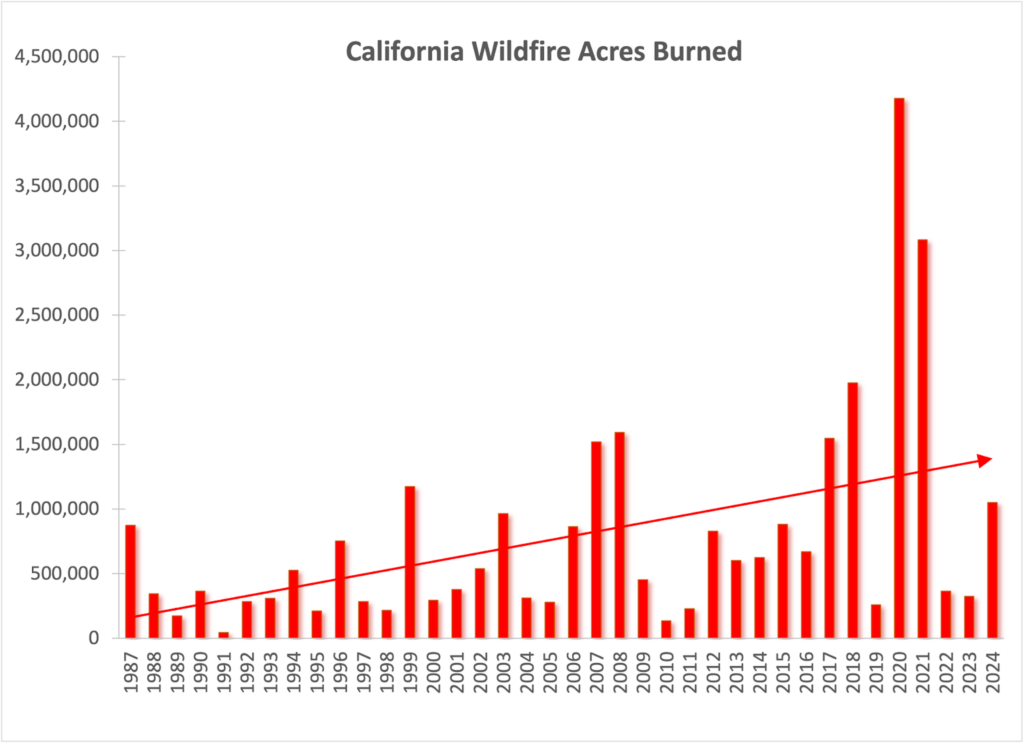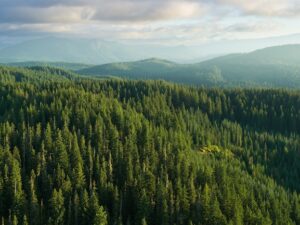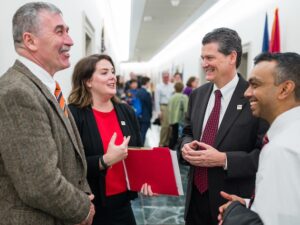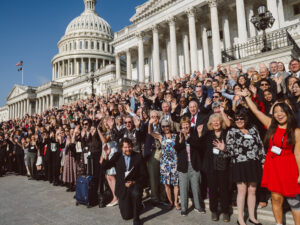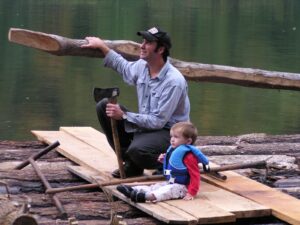By Dana Nuccitelli, CCL Research Coordinator
Last month, after seeing the devastating fires in Los Angeles, CCL volunteers sent 4,509 messages (and counting!) to Congress, urging them to work in a bipartisan way to reduce wildfire risk. Democratic Rep. Scott Peters from California and Republican Rep. Bruce Westerman from Arkansas have now introduced an updated version of the Fix Our Forests Act. The bill is intended to improve forest health, increase resilience to wildfires, boost forest restoration projects, protect communities, and more.
Upon introduction of the bill, our Government Affairs staff conducted outreach to congressional offices, encouraging them to advance the legislation. The bill sponsors named CCL as an organization who supports the bill. The House quickly brought the bill to the floor on January 23 and passed it with a bipartisan vote of 279 to 141.
The bill is now moving to the Senate, and CCL is ready to mobilize our grassroots muscle and help move the needle. That starts with CCLers learning about the bill. To that end, our Senior Director of Government Affairs Jennifer Tyler and I gave a Citizens’ Climate University training to educate CCL volunteers about this important bill. Watch the full training here or read on for a recap.
Climate change and forest management practices are worsening wildfires
Thirty years ago, an average of about 400,000 acres burned each year in California’s wildfire seasons. Over the past decade, that number has jumped to an average of over 1.4 million acres.
The factors causing that increase in extreme wildfires can be lumped into two buckets: climate change and forest management.
Climate change has made the western United States hotter and drier, turning more vegetation into wildfire fuel. The wildfire season has also become longer, with less rain falling in the spring and fall months surrounding California’s naturally dry summers. That means wildfires start earlier in the year and continue later into the year than they used to. Overall, a 2016 study estimated that climate change “doubled the cumulative forest fire area since 1984.”
But forest management practices have also played a big role in worsening wildfires. A 2023 paper pointed to the role that colonialism played by ending Indigenous cultural burning practices. These were replaced by a philosophy of suppressing and extinguishing all wildfires as quickly as possible, which led to an overgrowth of dense vegetation in an increasingly hot and dry climate, creating the conditions for more extreme wildfires.
Those wildfires cause all kinds of nasty consequences, including the release of the carbon that was stored in the trees back into the atmosphere; lost wildlife; more hazardous wildfire smoke in the air; lost lives and possessions; the associated trauma; and the costs to recover and rebuild, which are threatening to trigger an insurance crisis.
Fix Our Forests introduces some solutions
The Fix Our Forests Act aims to help address the forest management side of the problem. It includes provisions to restore forest health, increase resiliency to catastrophic wildfires, and build fire-safety defenses for communities in high-risk areas. Specifically, as Jenn explained, the bill:
- Simplifies and expedites the most critical forest management projects while maintaining strong environmental standards
- Reduces the threat of frivolous litigation and redundant agency consultations
- Adds new ways for communities to provide input early and often in planning and implementation
- Provides agencies with emergency tools to increase the pace and scale of management
- Invests in innovative fire detection, suppressant technologies, modernizing construction standards
- Creates interagency Fireshed Center
- Provides support for wildland firefighters
- Hardens utility rights-of-way against wildfire
Some opponents have argued that Fix Our Forests undermines core environmental protection laws. But the bill does not amend, alter, or roll back the National Environmental Policy Act (NEPA) or the Endangered Species Act. It does provide some emergency response authorities, which CCL staff believe are warranted given the ongoing wildfire crisis. For example, the bill expands categorical exclusions from lengthy environmental reviews to forest management projects as large as 10,000 acres, up from the current limit of 3,000 acres. This change was requested by California and the U.S. Forest Service to allow them to better respond to wildfire risks.
In addition to CCL, the Fix Our Forests Act is supported by many organizations including American Forests, the National Congress of American Indians, the Western Fire Chiefs Association, the Federation of American Scientists, the Theodore Roosevelt Conservation Partnership, and many more.
Next steps
If your representative in the House voted in favor of the Fix Our Forests Act, you can send an appreciation to the office or post it on social media.
In the coming weeks, we will begin to take action on the Senate side, but please wait to reach out to your Senator until you hear more guidance from CCL staff. In the meantime, think through what you’ve learned here and discuss with your chapter what messages about the bill might be most persuasive for your specific Senator. That way, you’ll be ready to work to bring them on board in the coming weeks.
Watch the video: The Fix Our Forests Act
Climate change and forest management are both playing a role in the worsening of wildfires. The House just passed a bipartisan bill called the Fix Our Forests Act, which aims to help address the problem. Fix Our Forests combines CCL’s healthy forests and permitting reform policy areas. Join CCL Research Coordinator Dana Nuccitelli and Senior Director of Government Affairs Jennifer Tyler to learn about the science behind worsening wildfires, the Fix Our Forests Act, and CCL’s support of it.


